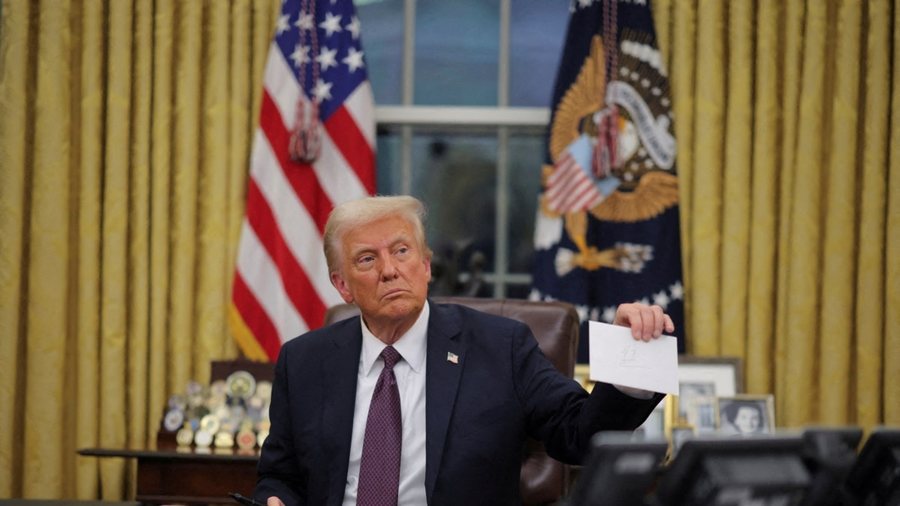
President Donald Trump's executive order, which seeks to change the right to citizenship for children born on American soil, a right guaranteed by the 14th Amendment to the Constitution, is facing major legal challenges.
A day earlier, a federal judge temporarily blocked Mr. Trump's order, a decision that the president said he would appeal to the Supreme Court.
President Donald Trump said Thursday that his administration will appeal a federal judge's decision to temporarily block an executive order that ends the constitutional right to citizenship for children born on American soil without considering the legal status of their parents.
"We will definitely appeal. They took the case to a certain judge in Seattle. His decision was expected," Mr. Trump said.
District Judge John C. Coughenour ruled on the appeal filed by the states of Washington, Arizona, Illinois and Oregon, which argue that the 14th Amendment and the Supreme Court have cemented the right to citizenship through birth.
This case is one of five lawsuits filed by 22 states and a number of immigrant rights groups across the country.
President Trump's order states that a child born in the United States cannot automatically obtain citizenship if the mother does not have legal immigration status, or if she is in America on a visa, but only temporarily, and if the father is not a US citizen or permanent resident.
The order prohibits US agencies from issuing documents that recognize as citizens children born to parents who do not have the proper legal status, or from accepting documents from specific US states that recognize citizenship for these children.
“Many legal scholars and civil rights groups say it would take a constitutional amendment to change birthright citizenship. That would require three-quarters of the states to agree, as well as two-thirds of the U.S. House of Representatives and Senate,” says Julia Gelatt, Director of the U.S. Immigration Policy Program at the Immigrant Policy Institute.
Birthright citizenship means that those born in the United States automatically become American citizens, regardless of the legal status of their parents.
For decades, the rule has also applied to children born to parents who are in the United States without documents, or to parents with tourist or student visas who plan to return to their country of origin.
This practice is not practiced in any other country. President Trump and his supporters argue that the system is being abused and that there should be stricter standards for becoming a US citizen.
But others say that this is a right guaranteed by the 14th Amendment to the Constitution, which is extremely difficult to overturn and that, even if possible, it is a bad idea.
President Trump and opponents of birthright citizenship argue that the rule encourages people to come to the United States illegally, or to participate in what is known as "birth tourism," where pregnant women come to the U.S. specifically to give birth so that their children can obtain citizenship.
In countries where this right does not exist, says expert Gelatt, many children are born "stateless."
"This means they can't access passports. They can't travel abroad. They can't vote and they have no voice in government. They grow up without a sense of belonging to a country," Ms. Gelatt told the Associated Press news agency.
According to the Immigration Policy Institute, in 2019, 5.5 million children under the age of 18 had at least one undocumented parent. These children made up 7 percent of the total number of American children, and the majority of them were American citizens.
The nonpartisan organization said during Mr. Trump's 2015 presidential campaign that the number of people in the country with illegal status would increase if birthright citizenship were abolished, creating a "class that would be excluded from social integration for generations."
After the Civil War, Congress ratified the 14th Amendment in July 1868. The amendment guaranteed citizenship to everyone, including blacks.
"All persons born, or naturalized in the United States, and subject to the jurisdiction thereof, are citizens of the United States and of the State wherein they reside," states the 14th Amendment.
"No State shall make or enforce any law which shall abridge the privileges or immunities of citizens of the United States," it further states.
But the 14th Amendment did not always translate into a right to citizenship at birth. For example, it was not until 1924 that Congress decided to grant citizenship to all Native American Indians born in the United States./ Voice of America (A2 Televizion)











